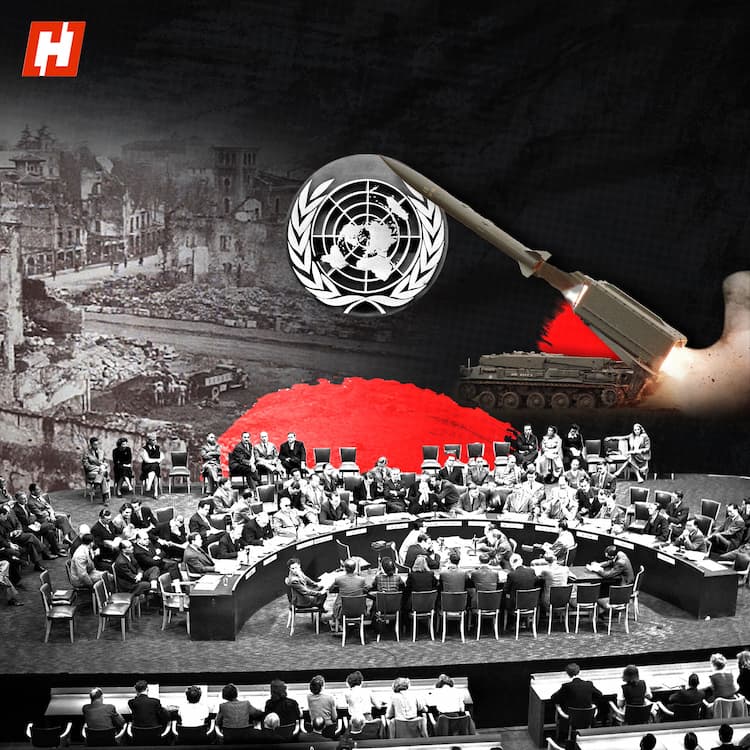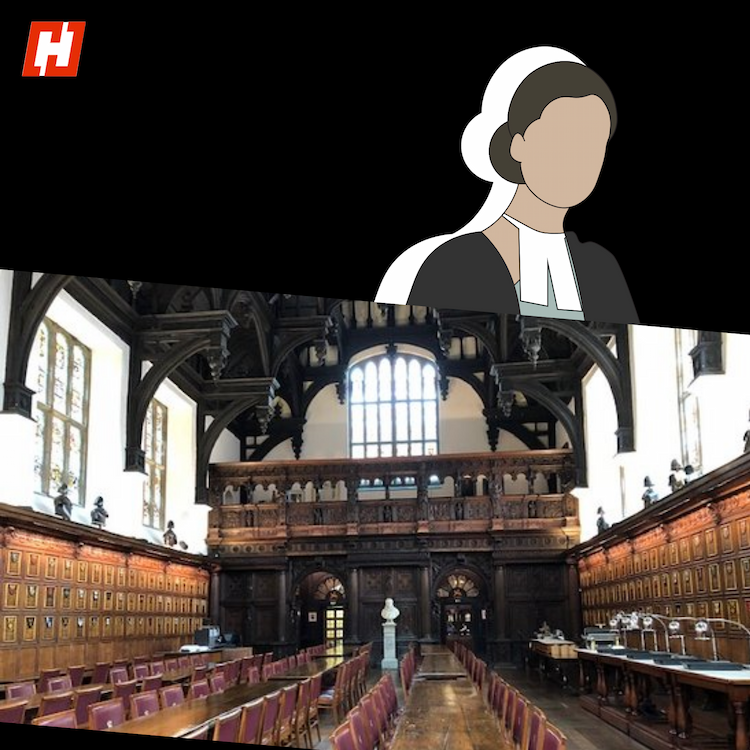Politics for profit: Trump’s shocking conflicts of interest are hiding in plain sight

US President Donald Trump on July 18 signed the GENIUS Act into law. The historic piece of legislation marks a huge win for the crypto industry as it creates a regulatory regime for dollar-pegged cryptocurrencies known as stablecoins. Alas, the underlying feeling is that this new law is just the latest glaring example in a long line of Trump’s conflicts of interest.
Trump’s dodgy cryptocurrency venture
Why? Because Trump’s big crypto venture - World Liberty Financial (WLF), launched in September 2024 by Trump’s sons and the US President as its “chief crypto advocate”, launched USD1 in March, a dollar-pegged stablecoin.
USD1 is currently valued at $2.3 billion. The majority of which comes from a $2 billion transaction by MGX. According to a Reuter’s report, MGX is chaired by Sheikh Tahnoon bin Zayed Al Nahyan, the UAE's national security adviser and a brother of UAE President Sheikh Mohammed bin Zayed. Abu Dhabi's state-owned $330 billion wealth fund Mubadala is a partner in MGX.
That a company with ties to the government of an Arab petrostate should be able to make such a giant investment in a crypto venture generating profit for the sitting US president and his family feels illegal but it is not.
The Trump-Musk connection: $100 million to be Tesla’s brand ambassador?
Before Trump and Elon Musk’s very public feuding, in March 2025, Trump behaved more like an overenthusiastic Tesla salesman than President of the ‘most powerful country in the world’. Trump was seen posing for the world’s media against a backdrop of different models of Tesla, declaring the cars to be “a great product as good as it gets”. Additionally, Trump went on to inform the American people that some Tesla models retail for as little as $299 a month, “which is pretty low”.
Also watch: Support or deport: Trump’s plan for adversaries like Musk, Mamdani
Now, this could have been dismissed as the then-BFFs scratching each other’s backs. Boys often go on and on about their toys but within hours of the White House’s makeover into a Tesla showroom, a New York Times report revealed that Musk had decided to invest $100 million in Trump’s political operations. Mind you, this was over and above the nearly $300 million that Musk had already spent in putting Trump in the Oval Office.
Other examples of Trump’s conflicts of interest include the $16 million payment by Paramount to settle a lawsuit as part of a reported quid-pro-quo for approving an impending merger for Paramount. There are also dinners with the President going for $5 million a pop, shady real estate deals in Arab petrostates, and more.
The list of "sordidities" just goes on, and on… and on! So, we’re going to focus on Trump’s dodgy cryptocurrency ventures and the Qatari plane debacle.
Trump meme coin: Cashing in on the Presidential frenzy, fueling the ethics nightmare
First up - the dodgy cryptocurrency ventures. Shortly before stepping into office for the second time as the 47th President of the US, the Trump fam launched personal lines of meme coins, $TRUMP and $MELANIA.
Now, for the uninitiated, in the murky world of crypto, meme coins represent one of the riskier investments, if not the most. That’s because meme coins are used to build popularity for a viral internet trend, like the Dogecoin - widely considered to be the first meme coin.
Meme coins lack intrinsic value and tend to be more volatile than major cryptocurrencies, like Bitcoin and Ether. They generally gain popularity due to their low prices, community-driven nature, active marketing through social media, and endorsements from high-profile figures.
As POTUS, you really can’t get more ‘high profile’. The irresistible magnetism of the US Presidency helped Trump blast his hype-reliant nascent meme coin into the “stratosphere”. It rocketed from $6.50 on inauguration day to a peak of $73. Predictably it plummeted back down to below $10. Brazenly, he then used his Presidential allure once again to boost the coin.
This time he announced a “private intimate dinner” for the top 220 $TRUMP investors, followed by an exclusive White House tour for the top 25. The ensuing frenzy to get a seat at POTUS’ dining table reportedly earned the Trump family $148 million.
More importantly, the $TRUMP meme coin is an ethics regulator’s waking nightmare. There is little transparency around who is channeling money into it, and even less around the potentially nefarious motives of investors.
The same might be said about the Trump gang’s other big crypto venture - the aforementioned World Liberty Financial (WLF).
Beyond UAE’s MGX, one of WLF’s other big backers is the Chinese-born crypto billionaire Justin Sun. He is best remembered as the dude who paid $6.2 million at a New York art sale for a banana taped to a wall, and then eating that multi-million dollar plantain.
Sometime before Trump’s inauguration, Sun pumped $75 million into WLF. Makes sense since he’s a crypto guy. But alarm bells started ringing when a few weeks later, the Securities and Exchange Commission paused an investigation into him for alleged securities fraud.
The Qatari luxury jetliner: Scandal or gift?
Let’s now move on to what many Democrats have called the "largest bribe in American history" - the Qatari government’s “gift” of a $400 million luxury jetliner to Trump during his Middle East tour in May.
You’d think Trump would have had sleepless nights about such a public offering by a foreign state. But Trump shrugged it off, declaring it as “a great gesture from Qatar”, one that he appreciated very much. He further added that he only “a stupid person” would turn down an offer of this.
Trump has maintained that the plane transfer is lawful, as it is being provided to the US Department of Defence rather than to him personally. He reiterated that he had no intention of using it after leaving office.
But many including Chris Murphy, the Democratic US senator from Connecticut and member of the US Senate Foreign Relations Committee, think the deal is sus. In June, he decried Trump’s abuse of the powers bestowed upon him by the American public “to demand the same kind of tribute that kings and monarchs demanded”.
He believes that no one other than “a foreign power over whom Donald Trump had leverage” would invest $2 billion in his business. Regarding the Qatari jet, he said that the Middle Eastern nation gave him the jet because “they couldn't say no”.
How is Trump getting away with the many conflicts of interests?
You’d think that as President of the country, as a rule, Trump would have to give up his business interests to avoid any accusations of conflict, right? Because surely the US President can’t continue to run his businesses while in office? A country like the United States - the torchbearer of democracy and rule of law - must surely have checks and balances to ensure he doesn’t misuse the highest office, just to make a buck.
Trump was asked exactly that just before assuming office for the first time as the 45th POTUS. He defiantly declared he has “no conflict of interest provision as President” and that there is nothing to stop him from running his business and the government at the same time. He even doubled down on it by saying he’d be the only one that would be able to do that and he’d “do a very good job”.
And you know what? Trump’s right. As dodgy as that sounds.
Also watch: Project 2025: Immigration to abortion ban, Trump delivers on Heritage Foundation's plan
While there are many, many federal and state laws that would prevent members of Congress, members of the federal judiciary, and state governors from running businesses while in office, there is no law preventing the President or the Vice President from doing exactly that.
The US President could construct an office or residential building, or invest in a complex abroad, like say in Dubai (which Trump has), if he wanted to and even manage those investments through his children or directly, because there is NO federal law regulating it, let alone prohibiting it.
Potential conflicts of interests, if any, with respect to the President, are more a political problem, not a legal problem. Basically, if the US President used their official powers to make a decision in order to enhance their own wealth via profit-making ventures, they would expose himself to severe political criticisms and perhaps even impeachment. But if they could tolerate the political firestorm, no legal action would ensue. Trump knew this and decided to test its limits.
Trump’s big NO to ‘Blind Trust’
Trump became the only occupant of the Oval Office in modern times to refuse to divest his assets by putting them into a blind trust. Instead, he put his assets in a trust that remained under the control of his family - particularly eldest son, Donald Trump Jr and his other son, Eric Trump, with President Trump as its sole beneficiary.
Though not a rule, divesting personal assets or at least putting them in a blind trust has been the norm since forever. Historical examples include George Bush Jr who sold his stake in the Texas Rangers baseball team as he prepared to seek the Presidency.
So, despite racking up apparent violations upon violations, how has Trump managed to get away with it?
Something like the US Constitution’s Emoluments Clause should have deterred him when accepting the Qatari jet, right?
For context - the clause states that “no Person holding any Office of Profit or Trust under them, shall, without the Consent of the Congress, accept any present, Emolument, Office, or Title, of any kind whatsoever, from any King, Prince, or foreign State.”
And there was a very good reason too for adding the clause. It was written into the Constitution by unanimous vote at the Philadelphia Convention in 1787. It was explained - by James Madison, for example - as a necessary provision to “exclude corruption and foreign influence”. Because at that time, America was a fledgling young nation trying to forge its own path and there was deep concern that Louis XVI, the then king of France, might try to use his riches to illicitly influence its leaders.
Yet there is nothing to prevent outside interests with connections to foreign governments engaging with WLF and its USD1 stablecoin. Moreover, since winning the race to the White House, Trump has used his Presidential status and executive power to boost not only the general standing of crypto but also his personal stake within it. At the same time, he has eviscerated basic regulatory controls, halted federal crypto-related lawsuits and disbanded a taskforce trained to hunt down crypto criminals.
Kathleen Clark, professor of law at Washington University, decries that a key tactic Trump and his lackeys have employed is blitzkrieging public sector watchdogs. She says that they’re “doing so much so fast that they are overwhelming the ability of ethics groups and institutions to respond”.
Norman Eisen, the former special counsel for ethics during Barack Obama’s first year in the White House, calls Trump’s side-hustles “corrupt, unethical and un-American”. He singles out the two crypto ventures and believes they amount to “one of the worst and most shocking conflicts of interest” in America’s history.
What does the White House have to say about all this?
When asked by The Guardian to comment on the complaints of conflicts of interest against Trump, a White House spokesperson replied with a statement and I quote - “There are no conflicts of interest. President Trump’s assets are in a trust managed by his children.” They added that “President Trump only acts in the best interests of the American public – which is why they overwhelmingly re-elected him to this office, despite years of lies and false accusations against him and his businesses from the fake news media.”
That’s true, he did get re-elected. And one of the key promises of Trump's campaign was "draining the swamp" or eliminating the ties between big business and government in Washington.
Trending in Geopolitics

The only Indian ever executed by the Nazis — M. Madhavan

'New world order' that never was: 80 years since World War 2

Why advocates wear black and white

